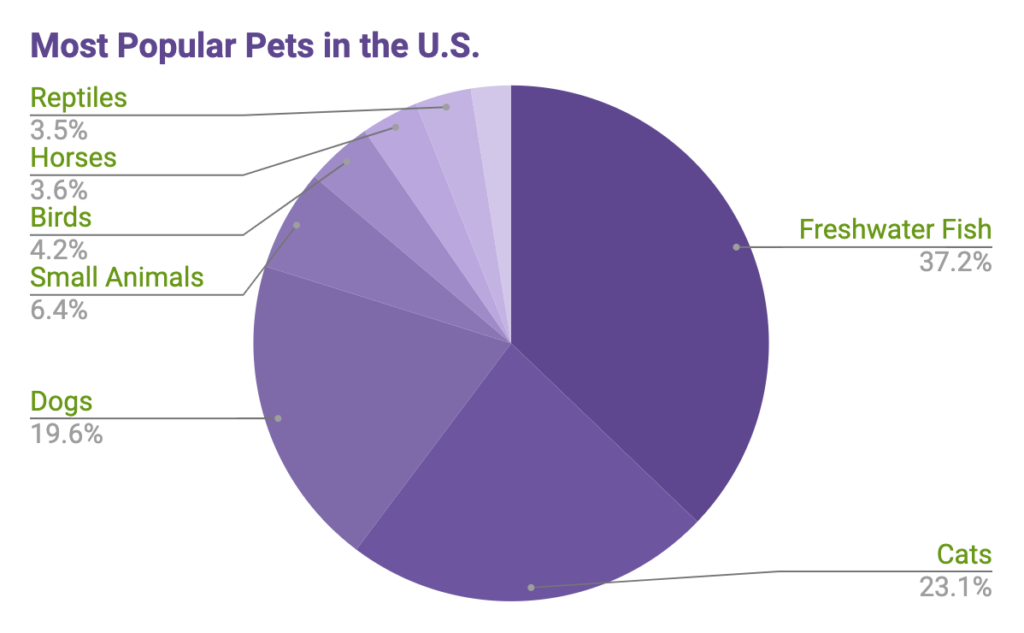We love our pets like family, and they rely on us for their care and wellbeing. But we cannot always be there for our pets; sometimes we have to leave them behind with a caregiver while we travel for work or vacation, and we often leave them at home while we’re at work or running errands.
Day-to-day, we feed our pets nutritious foods, give them any necessary medications, and make sure they get the exercise and mental stimulation they need to be healthy and happy. But what if you can’t be there? Caring for and protecting your pet goes beyond their daily routine; you need to have a plan for them in case you can’t be there when your pet needs you.
Sadly, 1.3 million pets enter animal shelters each year due to the death of their owners, and worse still, about 650,000 are euthanized. In total, about 2.7 million dogs and cats are euthanized each year because there aren’t enough adoptive homes and shelters are too full.
Death is something that we don’t like to think or talk about, but the reality is that it’s possible your beloved pet could end up in an animal shelter if you passed away without leaving a plan for their care.
The good news is, there are some very simple estate planning documents you can create to protect your pet if they outlive you and also during your lifetime, in cases where you may not be able to care for them, yourself.
Estate planning typically includes documents like a Power of Attorney and a Will, and these documents can cover your pets in some cases. However, despite the myth presented in Hollywood with movies like “The Aristocats”, your pet cannot be a beneficiary of your Will, and cannot inherit your assets after you die. This is because pets are legally considered to be property. The only way to include them in your Will is to give your pet to a beneficiary you name who will receive your pet upon your death.
Read More: Estate Planning 101 – The Documents You Need & Why

Why Should I Include My Pet in My Estate Plan?
Most pet owners love their pets like family, but they may forget to include their pets in an estate plan because they don’t realize that legally, pets are considered to be property. Others may just assume that a friend or family member will step in and take the pet into their home when the pet owner dies. Unfortunately, in many cases, the pet may end up at a shelter due to one or more of the following reasons:
- The new caregiver is unable to provide permanent care
- The new caregiver has a family member with pet allergies
- The new caregiver has a life change (new baby, move, etc.) that prevents them from continuing to care for the pet
- The pet does not integrate well in their new home
- The pet runs away and ends up on the street
By including your pet in your estate plan, you can ensure that they go to a caregiver who can agree to give them the ongoing care they need. You can also use other estate planning documents to provide funds for your pet’s ongoing care, or protect them while you’re still alive.
How Can I Protect My Pet Now?
Travel is a part of life for many of us, whether it’s for business or pleasure. For pet owners, travel often involves an extra element of planning; finding a pet sitter and informing them about the daily aspects of your pet’s care and providing them with emergency information. But what many pet owners don’t think about is what actually happens if their pet needs emergency surgery or an expensive veterinary treatment while they are away.
The fact is, most vets will not perform expensive surgeries or treatments for your pet without your verbal consent, at least. In some cases, they will also require written approval. The reason for this is that the vet needs some certainty that they will be compensated for the service, and they cannot be sure of this without consent from the pet owner.
There’s likely no issue if you are reachable by phone or email during your travels, but what if you are traveling internationally or are unavailable? It’s not enough to simply hire a pet sitter and tell them you authorize any treatment needed to keep them healthy and safe; you need to legally give them this authority. Otherwise, if you are traveling and your pet’s vet is unable to reach you, your pet may suffer.
What Estate Planning Documents Do I Need to Protect My Pet?
There are two primary estate planning documents you need to protect your pet today, and after your death, should they outlive you, and a supplemental document that includes all information relevant to your pet and their care:
- Pet Power of Attorney
- Pet Trust
- Pet Information Sheet

Pet Power of Attorney
If you ever travel or leave your pet with a sitter, you should create a Pet Power of Attorney.
With this document, you can legally appoint a person to take care of your pet when you are unavailable, either due to travel or incapacity. The caregiver you choose would be authorized to make decisions about your pet’s care and any veterinary services they need while you're away. The Pet Power of Attorney is flexible, so you can set limits for the extent, length of time, and financial amounts the caregiver is authorized to approve on your behalf.
Pet Trust
As we have discussed earlier in this guide, it’s important to consider that your pet may outlive you, and you may want to provide for their care after your passing if that should happen. The estate planning document you should have in this case is a Pet Trust.
This document allows you to appoint a Caregiver for your pet, a Trustee to manage the finances you set aside for your pet's care, and a Protector to ensure your wishes are followed after you pass away. You will need to fund your Trust to provide financial allotment for your pet’s care, and you can include additional compensation for your pet’s caregiver to make their role more manageable.
However, if you cannot afford to fund a Pet Trust with the financial provisions for your pet's care after you pass away, you should at least use your Will to designate a beneficiary to receive your pet. By including your pet in your Will in this way, you can be sure they will be entrusted to the care of the person you choose.
Pet Information Sheet
We all probably leave our pets with a sitter or caregiver at some point, and this person will need a go-to place to get all of the important details and information about your pet's care. A Pet Information Sheet is a supplemental estate planning document that includes your pet's emergency and vet contact information, feeding and exercise routines, medications and even things like their favorite toys, activities or walking routes.
With these documents, you can protect and provide for your pet today and tomorrow. Gentreo Pets includes all of these documents, plus accessible storage and easy, secure sharing through your Digital Family Vault for $49 per year. Click below to get started today!











